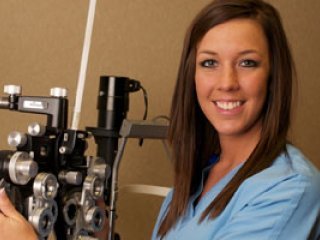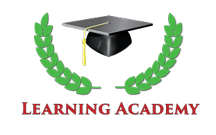
- Description
- Objectives
- Outline
- Materials
- Certification
- System Requirements
- Watch a Demo
This course provides all the practical information you need to complete your day-to-day tasks as an Ophthalmic Assistant.
Ophthalmic Assistant
Ophthalmic Assistants play a vital role in eye care. They perform ophthalmic procedures under the direction or supervision of a physician. An ophthalmic allied health professional assists the ophthalmologist by collecting data, administering tests and treatments, and supervising patients. This course provides all the practical information you need to complete your day-to-day tasks as an Ophthalmic Assistant. You will learn detailed information on paramedical training, ophthalmic technology, and efficient office management. This course also covers the anatomy, physiology, optics, pharmacology, and microbiology of the eye.
Medical Office Assistant
Would you like to know more about the role of medical assistants? Are you interested in what medical assistant duties involve? Also known as a medical administrative assistant or medical assistants, a medical office assistant performs a wide range of duties that are imperative to the smooth operation of a variety of medical offices. Medical office assistant duties can include updating patient files, filling out insurance forms, coordinating laboratory services, answering phones, ordering and maintaining medical supplies and equipment, and more. As the healthcare industry continues to expand, so does the need for medical office assistants. Many doctor's offices have come to rely on the work of a medical administrative assistant who performs a number of important medical office assistant duties.
Prerequisite(s): None
Ophthalmic Assistant
After completing this course, you should be able to:
- List the core elements of eye anatomy and optics
- Name the steps for dealing with patients and maintaining patient records
- Define contact lenses and the visual field
- Identify eye and vision disorders
- Recall surgical techniques and special procedures related to the eye
Medical Office Assistant
After completing this course, you should be able to:
- Identify the role of medical office assistant professional
- Recall the steps for managing patient records
- Recognize the standards for professional oral and written communication
- List the steps for managing various office financials
- Define the requirements for basic office management
Ophthalmic Assistant
Ophthalmic Assistant Module 1
Basic Sciences
- Anatomy of the Eye
- Visual Pathway
- Ocular Muscles
- Physiology of the Eye
- Alignment of the Eyes
- Intraocular Pressure
- Color Vision
- Physical Optics
- Geometric Optics
- Spherical and Chromatic Aberrations
- Pharmacology
- Prescription Writing
- Microbiology
Ophthalmic Assistant Module 2
Clinical Practice
- Office Efficiency and Public Relations
- Dealing with Patients
- Scheduling Appointments
- History of Present Illness
- Family History
- Preliminary Examination
- Measurement of Glasses
- Ophthalmoscopy
Ophthalmic Assistant Module 3
Visual Function, Equipment and Refractive Errors
- Aspects of Vision Loss
- Aspects of Visual Functions
- Ophthalmic Equipment
- Assessing Corneas
- Determining Tear Flow
- Refractive Errors
- Refractometry
Ophthalmic Assistant Module 4
Rigid and Soft Contact Lenses
- Spectacles
- History of Glasses
- Types of Lenses
- Care of Glasses
- Rigid Contact Lens
- Optics, Terminology, and Designs
- History of Hydrophilic Lenses
- Inventory vs. Diagnostic Lenses
- Abnormal Symptoms and Signs
- Role of Corneal Topography
Ophthalmic Assistant Module 5
Visual Fields
- Confrontation Test
- Perimeters
- Normal Visual Field
- Pathologic Defects in the Visual Field
- Automated Visual Field Testing
- Test Patterns
- Computers in Ophthalmic Practice
- Computer Controlled Equipment
Ophthalmic Assistant Module 6
Clinical Eye Problems
- Ocular Injuries
- Contusions
- Penetrations
- Lacerations
- Ocular Emergencies
- Temporal Arteritis
- Common Eye Disorders
- Cornea, Eyelids, Conjunctiva
- Common Retinal Disorders
- Foreign Body in the Eye
Ophthalmic Assistant Module 7
Common Eye Problems
- Congenital Glaucoma
- Primary and Secondary Glaucoma
- Classification of Uveitis
- Treatment of Uveitis
- Examination of a Newborn and Child
- Instillation of Eyedrops
- Binocular Vision
- Strabismus
Ophthalmic Assistant Module 8
Surgical Techniques
- Aseptic Technique
- Minor Office Surgery
- The Operative Patient
- Eye Surgery
- Highlights of Ocular Surgery
- Surgical Correction of Presbyopia
- Surgical Corrective Procedures
Ophthalmic Assistant Module 9
Types of Surgery
- Assisting the Surgeon
- Care and Handling of Surgical Instruments
- Lasers in Ophthalmology
- Pumping and Spontaneous Emission
- Safety in the Laser Clinic
- Ambulatory Surgery
- Preparation for Admission
Ophthalmic Assistant Module 10
Disorders and Ocular Imaging
- Refractive Surgery
- Corneal Collagen Crosslinking in the Management of Ectatic Diseases
- Technique of CXL
- Clinical Outcomes of CXL
- Wavefront Aberrations and Custom Ablation
- Optical Coherence Tomography
- Wavefront Aberrations
- Custom Ablation
Ophthalmic Assistant Module 11
Imaging and Special Procedures
- Ophthalmic Photography
- Digital Imaging
- Goniography
- Video Recording
- Optical Coherence Tomography
- Vitreomacular Traction
- Computerized Corneal Topography
- Specular Microscopy
- Diagnostic Ultrasound
Ophthalmic Assistant Module 12
Visual Aids and Ocular Vignettes
- Partial Sight and Blindness
- Total Blindness
- Cardiopulmonary Resuscitation
- History of Spectacles
- Early Eyeglasses
- The Frame
- Art and the Eye
Ophthalmic Assistant Module 13
Role of Assistants in Eye Care
- Allied Health Personnel in Ophthalmology
- Ophthalmology Ethics
- Informed Consent
- Conflicts of Interest
- Scope of Practice
- Testing and Certification of Ophthalmic Skills
Ophthalmic Assistant Module 14
Role of Assistants in Eye Care, continued
- Development of Allied Ophthalmic Personnel
- International Community
- Prevention of Blindness
- Eye Banking
- Atlas of Clinical Ophthalmic Disorders
Medical Office Assistant Module 1
Professional and Career Responsibilities
- Customer Service
- Employment Opportunities
- Job Responsibilities
- Understanding Emotional Work-Related Problems
- Professionalism
- Licensure
- Certification
- Health Care Reform
- History of Health Care
- Changes in Health Care
- Today’s Health Care Delivery System
- Medical Practice Setting
- Physician Specialist
Medical Office Assistant Module 2
Ethics and Communications
- Medical Ethics
- Medical Etiquette
- HIPAA 1996
- Confidentiality
- Medical Professional Liability
- Criminal and Civil Law
- Litigation Prevention
- Essential Communication
- Methods of Communication
- Professional Communication
Medical Office Assistant Module 3
Correspondence
- Written Communication
- Letter Standards, Styles and Components
- Composing Correspondence
- Supplies and Equipment
- Handling Incoming and Outgoing Mail
- Managing Office Mail
- Electronic Communication
Medical Office Assistant Module 4
Managing the Office
- Opening and Closing the Medical Office
- Processing Patients
- Reception Area
- Office Safety and Emergency Preparedness
- Telephone Procedures
- Telephone Equipment and Services
- Documenting Phone Calls
Medical Office Assistant Module 5
Appointments and Scheduling
- Appointment Scheduling Systems
- Scheduling Methods
- Scheduling Tips and Types of Appointments
- Appointment Reminders
- Appointment Reference Sheet
- Patient Satisfaction and Communication
- Staff Meetings
- Office Safety
Medical Office Assistant Module 6
Records Management
- Electronic Filing Procedures
- Paper-Based Filing Rules
- Filing Equipment
- Filing Documents in Patient Records
- Record Retention and Storage
- Destroying Documents
- Patient Medical Records
- Medical Record Systems
- Recordkeeping
- Drug and Prescription Records
- Medication Instructions and Refills
Medical Office Assistant Module 7
Health Claims
- Procedure Coding
- Coding for Professional Services
- CPT Coding Terminology
- Reimbursement Terminology
- Electronic Coding Aids
- Diagnostic Coding Using ICD-10-CM
- ICD-10-CM Codebook Organization
- Chapter-Specific Coding Guidelines
Medical Office Assistant Module 8
Health Insurance Systems
- Introduction to Insurance
- Types of Insurance
- Types of Managed Care
- Insurance Benefits
- Insurance Plans and Programs
- Insurance Claims Processing
- Health Insurance Claim
- Claim Status, Denials, and Appeals
Medical Office Assistant Module 9
Financial Administration
- Introduction to Fees, Credit and Collection
- Revenue Cycle
- Fees
- Patient Billing and Collection Methods
- Credit and Collection Laws
- Bookkeeping and Banking
- Accounts Receivable
- Bank Statements
Medical Office Assistant Module 10
Financial Management
- Managing the Office
- Medical Practices
- Computerized Financial Management
- Analyzing Practice Productivity
- Accounts Payable
- Payroll
- Seeking a Position as an Administrative Medical Assistant
Ed4Career is committed to being both environmentally conscious and making it easier for you to study! We’re making your education mobile! All of our textbooks are now provided as eTextbooks. You can access them on your laptop, tablet, or mobile device and can study anytime, anywhere.
The move away from physical books to eTextbooks means you get the latest, most up-to-date version available. This also makes your training more accessible, so you can study anywhere you have your phone or tablet. The best part is that all materials are included in your training cost so there are NO extra fees for books!
**Certification exams are not included in the cost of the course.**
Internet Connection
- Broadband or High-Speed - DSL, Cable, and Wireless Connections
*Dial-Up internet connections will result in a diminished online experience. Classroom pages may load slowly and viewing large audio and video files may not be possible.
Hardware Requirements
- Processor - 2GHz Processor or Higher
- Memory - 1 GB RAM Minimum Recommended
PC Software Requirements
- Operating Systems - Windows 7 or higher
- Microsoft Office 2013 or higher. Also, you could use a general Word Processing application to save and open Microsoft Office formats (.doc, .docx, .xls, .xlsx, .ppt, .pptx)
- Internet Browsers - Google Chrome is highly recommended
- Cookies MUST be enabled
- Pop-ups MUST be allowed (Pop-up Blocker disabled)
- The Kindle Reader App or VitalSource Bookshelf App are needed for many of our courses (No special equipment needed. This can be downloaded for FREE onto your computer.)
- PowerPoint Viewer (if you do not have PowerPoint)
- Adobe PDF Reader
- QuickTime, Windows Media Player &/or Real Player
MAC Software Requirements
- Operating Systems - Mac OS x 10 or higher with Windows
- Mac office programs or a Word Processing application to save and open Microsoft Office formats (.doc, .docx, .xls, .xlsx, .ppt, .pptx)
- Internet Browsers- Google Chrome is highly recommended
- Cookies MUST be enabled
- Pop-ups MUST be allowed (Pop-up Blocker disabled)
- The Kindle Reader App or VitalSource Bookshelf App are needed for many of our courses (No special equipment needed. This can be downloaded for FREE onto your computer.)
- PowerPoint Viewer (if you do not have PowerPoint)
- Adobe PDF Reader
- Apple QuickTime Media Player


